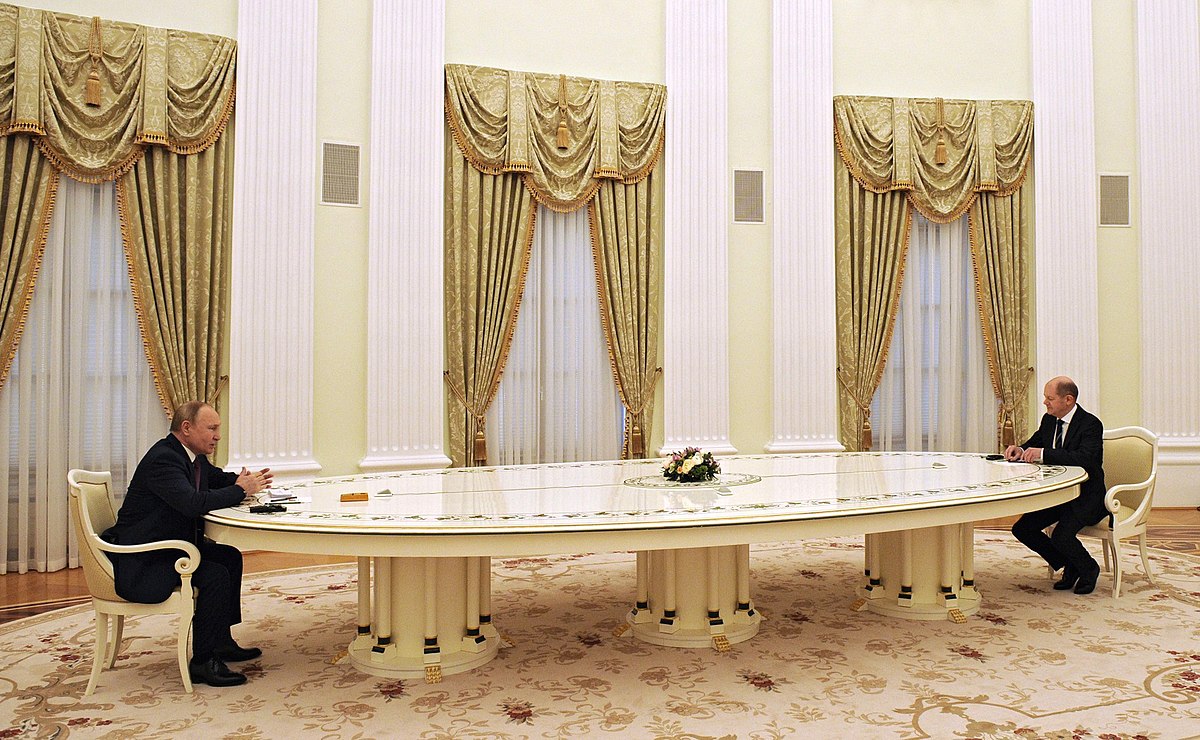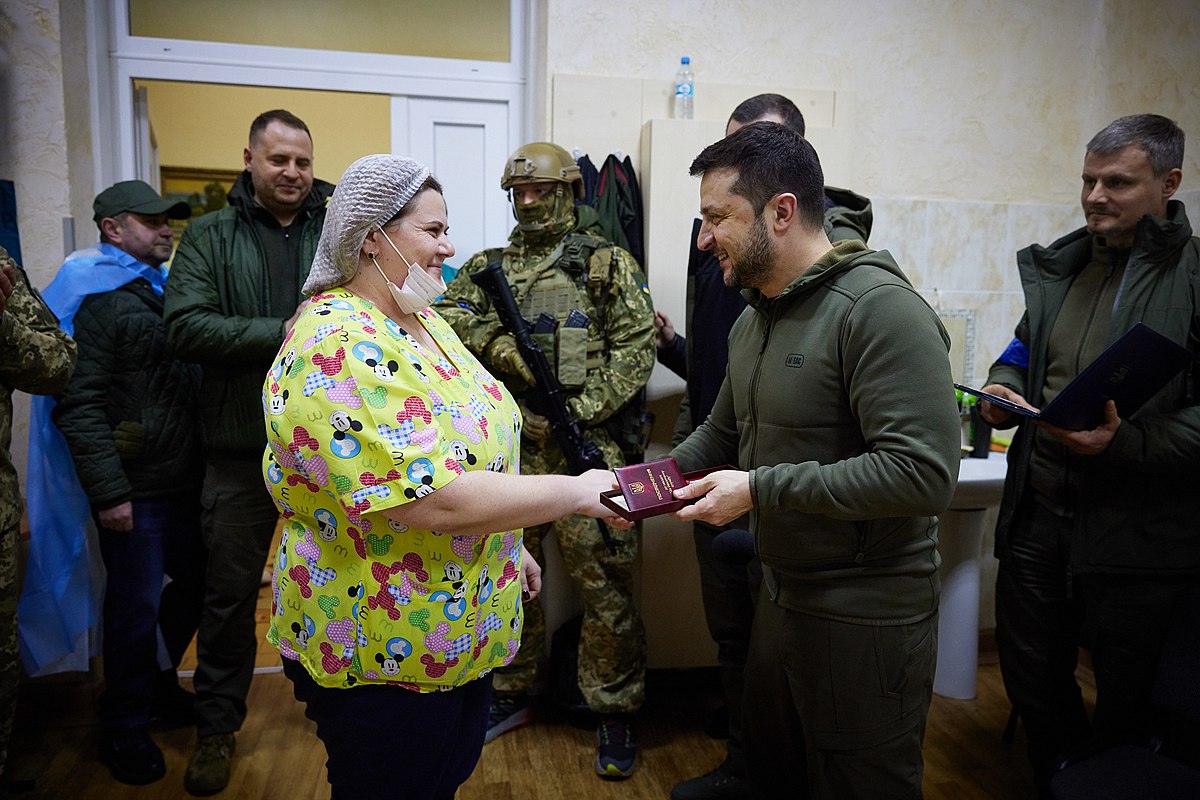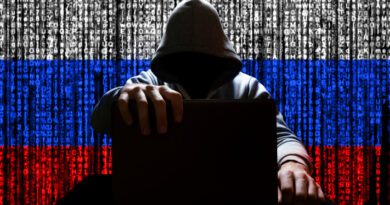Prof. Musiał: Germany realized that they created a Russian monster (Part 1)

SOVEREIGNTY.PL: What is the real meaning behind the words of Chancellor Olaf Scholz in the Bundestag over the weekend?
PROF. BOGDAN MUSIAŁ: I wasn’t expecting this at all. There was a real earthquake in Germany. I suspect that the visit of Prime Minister Morawiecki the Prime Minister of Lithuania to Berlin played a huge role in this. The Polish head of government was very resolute and came to Germany with specific demands. The Polish PM demanded that Germany completely abandon Russia and stand for Europe and Ukraine. Of course, in parallel, more and more pressure was exerted on the German government, both from the outside and from the inside – the public also began to manifest their sentiments against Russia. The German image suffered more and more, which is never good for business. Olaf Scholz had no choice but to give in, leave Russia and radially shift Germany’s politics towards the Kremlin.
What is the atmosphere in Germany around Russia today? How extensive is this shift in politics?
For the first time in history, there are mass demonstrations against Russia in Germany. On Sunday, there were over 100,000 protesters in Berlin! Of course, there were also Ukrainians and Poles, but most of them were Germans. The next day, there was a great demonstration in Cologne. There has been a gigantic revaluation in Germany. This is probably a surprise for everyone, including the German government itself. Everyone is now turning their backs on Gerhard Schroeder. Words that have previously been unthinkable until now are uttered towards Russia. German intellectuals are calling for no longer treating Russia as a unique state, but as an opponent. Russia has become a leper for the Germans.
After all, Germany did not have much choice in this matter, if they wanted to avoid complete embarrassment.
That’s true. It turned out that the German government had no other option. The course of events accelerated tremendously over the past week. Poland took leadership among the countries in the region that intervened very strongly to save Ukraine, and thus the whole of Europe. I cannot get over this upheaval, because in the last 20 years I have become used to pushy pro-Putin propaganda in Germany. And it was mainly thanks to the Germans that Putin dared to take another step in rebuilding the Russian empire. The Kremlin was convinced that the attack on Ukraine would also be met with a subdued response from Germany, that Berlin would again open an anti-sanction umbrella over Russia.
Can this change be permanent?
Scholz announced such an enormous and ambitious program that it is hard to imagine that Germany will now withdraw from it. 100 billion euros for the Bundeswehr and allocating more than 2% of Germany’s enormous GDP for the army – this is a true revolution. A revolution in the German perception of Russia, investing in the military and cutting itself off from energy sources “stained with blood”. This program will change Germany for many years to come.
Were the words spoken and promises made too big to allow Germany to unilaterally withdraw from it all sometime in the future?
I believe so. All of the German people heard it, all of Europe witnessed Scholz’s words. I consider a withdrawal from this to be an extremely unlikely scenario. Our world has changed beyond recognition in just a few days. And I say this with great satisfaction, because for years I have been pointing out to Germans that their policy towards Putin will lead to a tragedy, that Germany has become, in fact, a spokesman of the Kremlin in Europe. The Germans understood that they had created a Russian monster. Eventually it came to them that they were responsible for it. Today, I am noting with surprise that German columnists are even tougher in the courts than I am. The gears have been completely shifted. Suddenly, journalists, intellectuals, and politicians are racing in their accusations against the Russians of pursuing a murderous policy!
Can we confidently say that the Scholz plan is a new consensus on the German political scene?
Yes, this is a new consensus on the German political scene. Of course, I am not talking about the AfD, which is not a serious party. But when it comes to the parties that can realistically co-create the German government, everyone began to agree that Putin’s imperial Russia is evil. Interestingly, the Greens have always been anti-Putin, but in recent months they have blunted their criticism of the Kremlin because they felt that otherwise they would not be able to cooperate with the SPD, which was full of supporters for close cooperation with Russia. Anyway, the CDU was also very pro-Putin. Angela Merkel seemed to be leaving the chancellor’s office as a great leader. In the meantime, however, it turned out that Merkel is leaving behind plenty of debris. Because this is how you should call Germany’s policy towards Russia so far. Complete bankruptcy.
But is it actually realistic for Merkel to be remembered as a politician who was in fact Putin’s ally?
I hope so, because Merkel has been a genuine ally of Putin from start to finish, almost on a par with Gerhard Schroeder. I hope journalists and the public will not let her get away with this.
Is our attitude towards the newest aggression by Russia likely to seriously affect the relations between Poland and Germany in the context of European politics?
I am convinced that it will be so. Poles in Germany were presented as a xenophobic society that is prejudiced against refugees. In contrast, the Germans presented themselves as a “better”, more tolerant nation. The sea of refugees from Ukraine and the way they are received in Poland belies this narrative and opens the eyes of the Germans. Today, the Germans see Poles accepting the victims of Putin’s aggression with open arms, providing them with food and a roof over their heads. German society did not show such an attitude when the migration crisis broke out in 2015. At that time, the Germans accepted migrants because they had such a state order. For them, the sight of Polish hospitality is something inconceivable.
I also think that in the light of what happened in Ukraine and our attitude towards Russia, it will be much more difficult for Germany to present Poland on the EU forum as a country that has a problem with “European values”.
(…)
Prof. Bogdan Musiał is a Polish historian residing in Germany specializing, among others, in German and Russian history.



